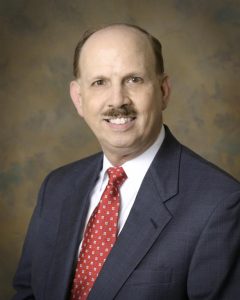In the recent case of Mendelsohn v. State of Florida Department of Health, Mendelsohn’s license to practice medicine was suspended under an Emergency Suspension Order (ESO).
According to the ESO, Mendelsohn is licensed to practice medicine in Florida pursuant to the provisions of chapter 458, Florida Statutes. On December 9, 2010, he entered a plea of nolo contendere in federal court to a charge of conspiracy to commit fraud upon the United States in violation of 18 U.S.C. § 371. As a result of his conviction, the Florida Department of Health immediately suspended his medical license without a hearing pursuant to section 456.074(1), Florida Statutes (2010), which states:
(1) The department shall issue an emergency order suspending the license of any person licensed under chapter 458 . . . who pleads guilty to, is convicted or found guilty of, or who enters a plea of nolo contendere to, regardless of adjudication, to:
. . .
(b) A misdemeanor or felony under 18 U.S.C. s. 669, ss. 285-287, s. 371, s. 1001, s. 1035, s. 1341, s. 1343, s. 1347, s. 1349, or s. 1518 or 42 U.S.C. ss. 1320a-7b, relating to the Medicaid program.
Mendelsohn argued that his federal conspiracy conviction was not related to the Medicaid program, so the Florida Department of Health could not issue an ESO without establishing that his actions posed an immediate danger to public safety.
Florida law requires that an order directing the immediate suspension of a practitioner’s license contain “every element necessary to its validity . . . on the face of the order.” In general, an ESO will not be upheld unless the order on its face sets out the specific facts and reasons for finding an immediate danger to the public health, safety, or welfare, as well as the Florida Department of Health’s reasons for concluding that the procedure used is fair under the circumstances.
However, Section 456.074(1), Florida Statues, however, requires DOH issue an emergency order suspending a medical license in certain circumstances without regard to specific proof that a petitioner is acting in a way that poses an immediate danger to public safety.
But Mendelsohn asserted that the Florida Department of Health incorrectly found that his conviction required an ESO under section 456.074(1)(b). Section 456.074(1)(b) requires the Florida Department of Health to issue an ESO when a practitioner has been convicted of a “felony under 18 U.S.C. s. 669, ss. 285-287, s. 371, s. 1001, s. 1035, s. 1341, s. 1343, s. 1347, s. 1349, or s. 1518 or 42 U.S.C. ss. 1320a-7b, relating to the Medicaid program.”
Although Mendelsohn was convicted of a felony in violation of § 18 U.S.C. 371, he contended his conviction was not related to the Medicaid program, and thus, did not support the issuance of an ESO without further proof that he posed a threat to public safety.
The court ultimately agreed with Mendelsohn, deciding “the underlying facts do not qualify as one of those instances where the Florida Department of Health may issue an ESO without providing specific reasons why the suspension is necessary to prevent immediate harm to the public.”
Do not let the Florida Department of Health take away your license unless it is warranted. Contact a board certified health law attorney who is knowledgeable in handling these matters. For more information about Emergency Suspension Orders and other legal matters concerning healthcare providers visit www.TheHealthLawFirm.com.
George Indest is an attorney, board certified by the Florida Bar in Health Law, who represents health care professionals and providers, including pain management clinics and pain management physicians.


